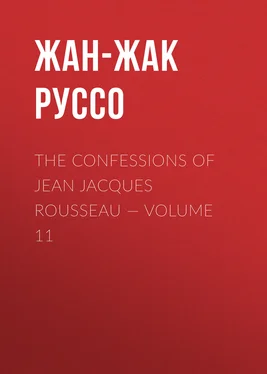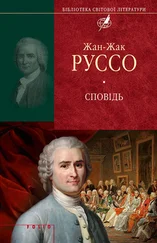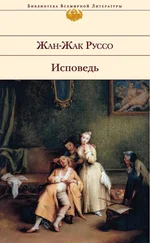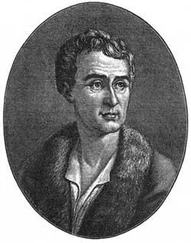Жан-Жак Руссо - The Confessions of Jean Jacques Rousseau — Volume 11
Здесь есть возможность читать онлайн «Жан-Жак Руссо - The Confessions of Jean Jacques Rousseau — Volume 11» — ознакомительный отрывок электронной книги совершенно бесплатно, а после прочтения отрывка купить полную версию. В некоторых случаях можно слушать аудио, скачать через торрент в формате fb2 и присутствует краткое содержание. Жанр: Биографии и Мемуары, literature_18, foreign_antique, на английском языке. Описание произведения, (предисловие) а так же отзывы посетителей доступны на портале библиотеки ЛибКат.
- Название:The Confessions of Jean Jacques Rousseau — Volume 11
- Автор:
- Жанр:
- Год:неизвестен
- ISBN:нет данных
- Рейтинг книги:4 / 5. Голосов: 1
-
Избранное:Добавить в избранное
- Отзывы:
-
Ваша оценка:
- 80
- 1
- 2
- 3
- 4
- 5
The Confessions of Jean Jacques Rousseau — Volume 11: краткое содержание, описание и аннотация
Предлагаем к чтению аннотацию, описание, краткое содержание или предисловие (зависит от того, что написал сам автор книги «The Confessions of Jean Jacques Rousseau — Volume 11»). Если вы не нашли необходимую информацию о книге — напишите в комментариях, мы постараемся отыскать её.
The Confessions of Jean Jacques Rousseau — Volume 11 — читать онлайн ознакомительный отрывок
Ниже представлен текст книги, разбитый по страницам. Система сохранения места последней прочитанной страницы, позволяет с удобством читать онлайн бесплатно книгу «The Confessions of Jean Jacques Rousseau — Volume 11», без необходимости каждый раз заново искать на чём Вы остановились. Поставьте закладку, и сможете в любой момент перейти на страницу, на которой закончили чтение.
Интервал:
Закладка:
Jean-Jacques Rousseau
The Confessions of Jean Jacques Rousseau — Volume 11
BOOK XI
Although Eloisa, which for a long time had been in the press, did not yet, at the end of the year, 1760, appear, the work already began to make a great noise. Madam de Luxembourg had spoken of it at court, and Madam de Houdetot at Paris. The latter had obtained from me permission for Saint Lambert to read the manuscript to the King of Poland, who had been delighted with it. Duclos, to whom I had also given the perusal of the work, had spoken of it at the academy. All Paris was impatient to see the novel; the booksellers of the Rue Saint Jacques, and that of the Palais Royal, were beset with people who came to inquire when it was to be published. It was at length brought out, and the success it had, answered, contrary to custom, to the impatience with which it had been expected. The dauphiness, who was one of the first who read it, spoke of it to, M. de Luxembourg as a ravishing performance. The opinions of men of letters differed from each other, but in those of any other class approbation was general, especially with the women, who became so intoxicated with the book and the author, that there was not one in high life with whom I might not have succeeded had I undertaken to do it. Of this I have such proofs as I will not commit to paper, and which without the aid of experience, authorized my opinion. It is singular that the book should have succeeded better in France than in the rest of Europe, although the French, both men and women, are severely treated in it. Contrary to my expectation it was least successful in Switzerland, and most so in Paris. Do friendship, love and virtue reign in this capital more than elsewhere? Certainly not; but there reigns in it an exquisite sensibility which transports the heart to their image, and makes us cherish in others the pure, tender and virtuous sentiments we no longer possess. Corruption is everywhere the same; virtue and morality no longer exist in Europe; but if the least love of them still remains, it is in Paris that this will be found.—[I wrote this in 1769.]
In the midst of so many prejudices and feigned passions, the real sentiments of nature are not to be distinguished from others, unless we well know to analyze the human heart. A very nice discrimination, not to be acquired except by the education of the world, is necessary to feel the finesses of the heart, if I dare use the expression, with which this work abounds. I do not hesitate to place the fourth part of it upon an equality with the Princess of Cleves; nor to assert that had these two works been read nowhere but in the provinces, their merit would never have been discovered. It must not, therefore, be considered as a matter of astonishment, that the greatest success of my work was at court. It abounds with lively but veiled touches of the pencil, which could not but give pleasure there, because the persons who frequent it are more accustomed than others to discover them. A distinction must, however, be made. The work is by no means proper for the species of men of wit who have nothing but cunning, who possess no other kind of discernment than that which penetrates evil, and see nothing where good only is to be found. If, for instance, Eloisa had been published in a certain country, I am convinced it would not have been read through by a single person, and the work would have been stifled in its birth.
I have collected most of the letters written to me on the subject of this publication, and deposited them, tied up together, in the hands of Madam de Nadillac. Should this collection ever be given to the world, very singular things will be seen, and an opposition of opinion, which shows what it is to have to do with the public. The thing least kept in view, and which will ever distinguish it from every other work, is the simplicity of the subject and the continuation of the interest, which, confined to three persons, is kept up throughout six volumes, without episode, romantic adventure, or anything malicious either in the persons or actions. Diderot complimented Richardson on the prodigious variety of his portraits and the multiplicity of his persons. In fact, Richardson has the merit of having well characterized them all; but with respect to their number, he has that in common with the most insipid writers of novels who attempt to make up for the sterility of their ideas by multiplying persons and adventures. It is easy to awaken the attention by incessantly presenting unheard of adventures and new faces, which pass before the imagination as the figures in a magic lanthorn do before the eye; but to keep up that attention to the same objects, and without the aid of the wonderful, is certainly more difficult; and if, everything else being equal, the simplicity of the subject adds to the beauty of the work, the novels of Richardson, superior in so many other respects, cannot in this be compared to mine. I know it is already forgotten, and the cause of its being so; but it will be taken up again. All my fear was that, by an extreme simplicity, the narrative would be fatiguing, and that it was not sufficiently interesting to engage the attention throughout the whole. I was relieved from this apprehension by a circumstance which alone was more flattering to my pride than all the compliments made me upon the work.
It appeared at the beginning of the carnival; a hawker carried it to the Princess of Talmont—[It was not the princess, but some other lady, whose name I do not know.]—on the evening of a ball night at the opera. After supper the Princess dressed herself for the ball, and until the hour of going there, took up the new novel. At midnight she ordered the horses to be put into the carriage, and continued to read. The servant returned to tell her the horses were put to; she made no answer. Her people perceiving she forgot herself, came to tell her it was two o'clock. "There is yet no hurry," replied the princess, still reading on. Some time afterwards, her watch having stopped, she rang to know the hour. She was told it was four o'clock. "That being the case," she said, "it is too late to go to the ball; let the horses be taken off." She undressed herself and passed the rest of the night in reading.
Ever since I came to the knowledge of this circumstance, I have had a constant desire to see the lady, not only to know from herself whether or not what I have related be exactly true, but because I have always thought it impossible to be interested in so lively a manner in the happiness of Julia, without having that sixth and moral sense with which so few hearts are endowed, and without which no person whatever can understand the sentiments of mine.
What rendered the women so favorable to me was, their being persuaded that I had written my own history, and was myself the hero of the romance. This opinion was so firmly established, that Madam de Polignac wrote to Madam de Verdelin, begging she would prevail upon me to show her the portrait of Julia. Everybody thought it was impossible so strongly to express sentiments without having felt them, or thus to describe the transports of love, unless immediately from the feelings of the heart. This was true, and I certainly wrote the novel during the time my imagination was inflamed to ecstasy; but they who thought real objects necessary to this effect were deceived, and far from conceiving to what a degree I can at will produce it for imaginary beings. Without Madam d'Houdetot, and the recollection of a few circumstances in my youth, the amours I have felt and described would have been with fairy nymphs. I was unwilling either to confirm or destroy an error which was advantageous to me. The reader may see in the preface a dialogue, which I had printed separately, in what manner I left the public in suspense. Rigorous people say, I ought to have explicity declared the truth. For my part I see no reason for this, nor anything that could oblige me to it, and am of opinion there would have been more folly than candor in the declaration without necessity.
Читать дальшеИнтервал:
Закладка:
Похожие книги на «The Confessions of Jean Jacques Rousseau — Volume 11»
Представляем Вашему вниманию похожие книги на «The Confessions of Jean Jacques Rousseau — Volume 11» списком для выбора. Мы отобрали схожую по названию и смыслу литературу в надежде предоставить читателям больше вариантов отыскать новые, интересные, ещё непрочитанные произведения.
Обсуждение, отзывы о книге «The Confessions of Jean Jacques Rousseau — Volume 11» и просто собственные мнения читателей. Оставьте ваши комментарии, напишите, что Вы думаете о произведении, его смысле или главных героях. Укажите что конкретно понравилось, а что нет, и почему Вы так считаете.











